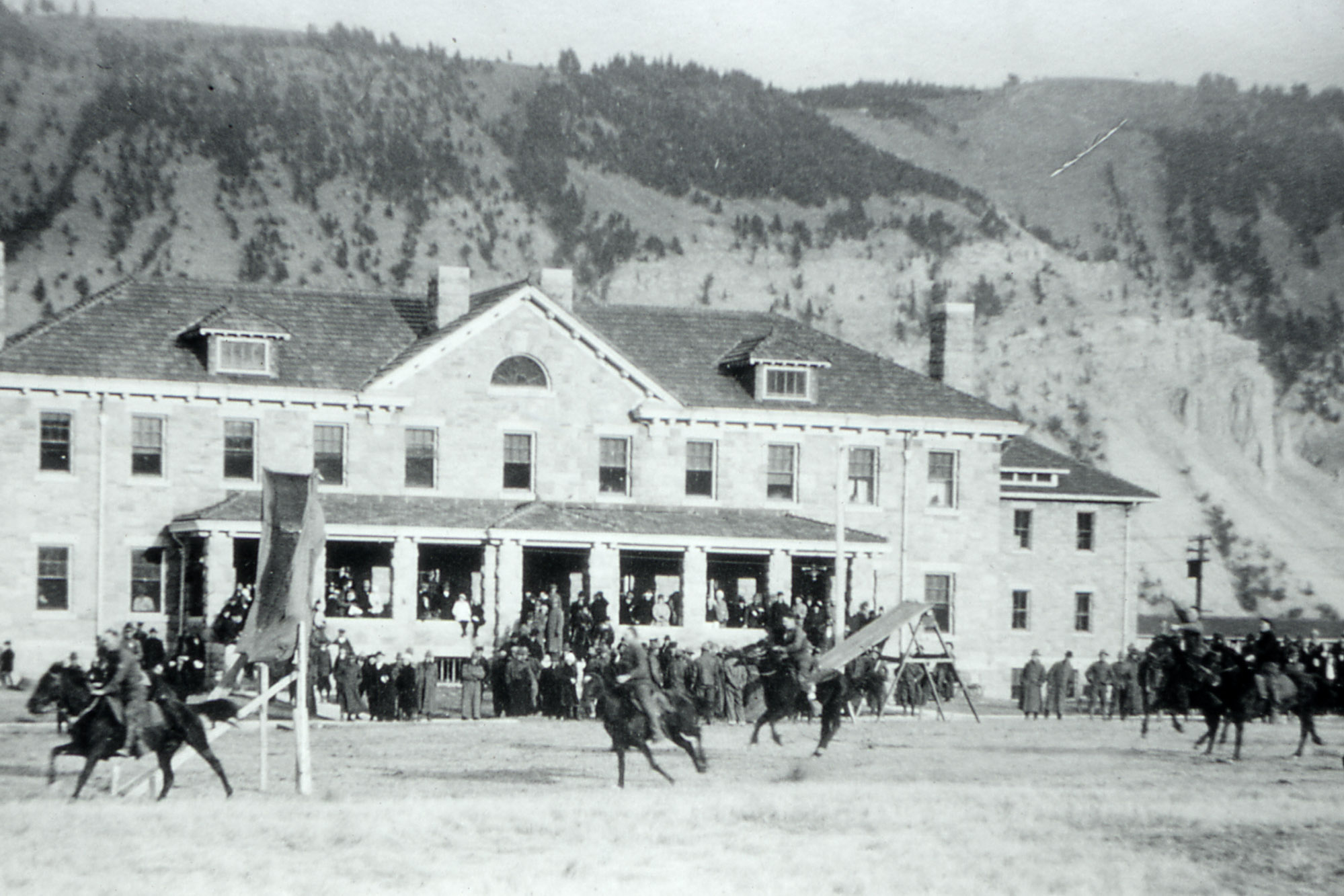Dragooning the Founding Fathers to fight contemporary political battles is a time-honored tradition. Without a doubt, if Washington, Jefferson, and Adams were all here, they would ... well, they'd agree with me and take my side on every question. And since their word is Holy Writ, that proves I'm right. About everything,
Okay, not really, but I do sometimes find myself wondering what the FF's would think if they could suddenly be transported from their day to ours. I tend to imagine them stumbling around dazed for a few days, loading up on hard liquor, and then, when that runs out, quietly going off to kill themselves, James Madison perhaps muttering darkly “I told you it would never last.” Only Alexander Hamilton, I suspect, would recover from the dizzying shock and slowly come to think, “Hey! It worked! Commerce! Wealth! Power! Oh, it's everything I wanted!”
 Hamilton, as the man most responsible for putting the United States on a sound, capitalist-friendly fiscal footing, has long been a favorite of conservatives. A historian whom I can't recall once noted that one can trace the relative ebb and flow of conservatism and liberalism by counting the rise and fall in biographies of Alexander Hamilton and Thomas Jefferson. It's no coincidence that one popular biography of Hamilton was penned by a senior editor of National Review.
Hamilton, as the man most responsible for putting the United States on a sound, capitalist-friendly fiscal footing, has long been a favorite of conservatives. A historian whom I can't recall once noted that one can trace the relative ebb and flow of conservatism and liberalism by counting the rise and fall in biographies of Alexander Hamilton and Thomas Jefferson. It's no coincidence that one popular biography of Hamilton was penned by a senior editor of National Review.
So, while the question of the day is about our national debt, and whether or not the GOP is bluffing about be willing to default, if I could conjure up just one of those Founding Fathers, I would want to hear what Hamilton had to say. Because if there could be such a person as the patron saint of the national debt, Hamilton is the man. He believed in a national debt. More importantly, he believed in timely, reliable payment of that debt. That last point is crucial; in fact, Hamilton actually advocated having a national debt just so that the government would need to make timely, reliable payments. Long before there were any guitar-playing pirate-waiters to make the point, Hamilton preached the value of a solid credit rating.
Hamilton knew that, whether they like it or not, governments sometimes have to borrow money. Emergencies happen, mainly unexpected wars when the country would need to quickly raise, train, and equip a larger army than it could afford to maintain permanently.1 The kings of Europe had found themselves borrowing money from banks for centuries and the US would be no different. It couldn't be helped.
What could be helped, however, was the rate of interest that the government would need to pay when it did borrow. Governments needed a good credit rating at least as much as merchants did. Hamilton had closely watched how the British government operated and was deeply impressed. The British borrowed constantly, repaid promptly, and by proving itself the pinnacle of safety, could borrow at the lowest possible rates. Hamilton had come away deeply impressed with England's ability to leverage money and, as the first Treasurer of the United State, he wanted his new country to do the same.
To do so, however, was going to require a hard-core sales job. The Continental Congress had borrowed outrageous sums of money financing the War of Independence, still owed soldiers their back pay, and was hard-pressed figuring out how to pay off everyone they owed. Millions of dollars in loans were owed to private individuals, but many of those people were not the original lenders. Over the years, as the nation's poor financial standing became increasingly apparent, many people had sold their securities to speculators, at a substantial discount (often as low as 15% of face value). To many traditionalists in Congress, men who approached financial matters from a moral perspective, it stuck in the craw to simply pay the current owner full value. Hard-working, patriotic Farmer Brown, who had risked his scarce capital to aid the struggling Revolution when the outcome was uncertain, would never get more than his 15¢ on the dollar. The sharp speculator who bought the loan from him would succeed in making a killing off Mr. Brown's distress.
Hamilton did not say, “Morality be damned, we have bigger fish to fry,” but that is the gist of his 1790 Report on Public Credit. At all costs, the United States must demonstrate good faith in paying its debts. "Credit rating,” although the term hadn't been coined yet, but the concept is foundational to all of Hamilton's policies. The people with money should be willing to lend it to the government. No, they should be eager to lend money to the government. They should be so certain that their investment is rock-solidly safe that they will lend at the lowest possible rates. Anything else, any policies that shake the confidence of investors in the reliability of the Treasury, will end up increasing costs, squandering treasure, and draining investments. Everyone loses, both as individuals and as the Public.
But why was it necessary that the current holder get the full payment, and the original purchaser nothing beyond what he had sold the bond for? Hamilton made a feeble effort to defend the speculators on moral grounds, arguing that he too had risked his money on an uncertain outcome and demonstrated his faith in the nation. Given the way government officials were moving to profit off a scheme that looked less and less risky,2 it was an unconvincing argument. Hamilton may have advanced it only half-heartedly anyway, since it was beside the point. Again, he was looking to the future and the future he wanted was one where investors not only could loan with complete safety, but could sell their bonds at full value anytime they needed to. The bonds would be easily traded because the purchaser would know that he could redeem it at full value. With that kind of value, a government loan would be as good as money. It would be money, for all practical purposes, and those practical purposes were uppermost in Hamilton's mind.
Specie, that is, gold and silver coin – the original cold, hard cash – was scarce in North America and hard to increase without discovering more metal. A growing economy needs a more flexible money supply and rock solid government bonds would fit the bill nicely. If money is more plentiful, it can be borrowed more cheaply, to the benefit of everyone attempting a profit-making venture. Settlers could purchase homesteads; merchants could fill ships with goods. Again, everyone wins.
A solid, reliable national debt was an essential foundation to it all. It meant cheaper borrowing for the government, and ultimately lower taxes to pay for it. Entrepreneurs would have access to cheaper money, too, removing an impediment to trade and development. Hamilton was the great advocate of capitalist development, but it all depended on a government that was scrupulous about meeting its obligations.
No doubt Hamilton would have abhorred the way we spend tax money; I can't imagine him approving of Social Security or Medicare. But would he have been willing to gamble the nation's credit rating, even to eliminate the evils of social spending and high taxes?3 Perhaps, if he had to choose between modern levels of government spending or toying with default, he would tell Madison to move over and also drink himself to death.
_________________________________________________
1. If I had to list the number of ways in which the United States departs from its founding ideals, the modern military would be at the top of the list. A large standing army, it was believed, would almost inevitably be used to control the public; it would tempt Presidents to seek glory in foreign adventures; and if neither of those happened, it would still be an enormous financial burden. Of the three, only the first danger has failed to emerge. On the other hand, we've so militarized our police forces that it hardly makes a difference.
2. Several Congressmen, and at least one Treasury employee close to Hamilton (although apparently not Hamilton himself) were sending agents scouring the country for loans to buy up before word got out and the price began to rise. Such insider trading is, of course, illegal today.
3. High to him; current tax collection is, overall, a bit low compared to late 20th Century norms.
 The raft is a replica wanigan, a floating kitchen and supply store for lumbermen who worked in the deep woods, far from the main camp. Up the hill from this spot is the Lumberman's Monument, a celebration of those 19th Century men who supplied the nation with timber and stripped the Michigan landscape of its native cover. As you can see from this older image, they were effective at their jobs. The statue today is surrounded by second-growth trees.
The raft is a replica wanigan, a floating kitchen and supply store for lumbermen who worked in the deep woods, far from the main camp. Up the hill from this spot is the Lumberman's Monument, a celebration of those 19th Century men who supplied the nation with timber and stripped the Michigan landscape of its native cover. As you can see from this older image, they were effective at their jobs. The statue today is surrounded by second-growth trees.





































